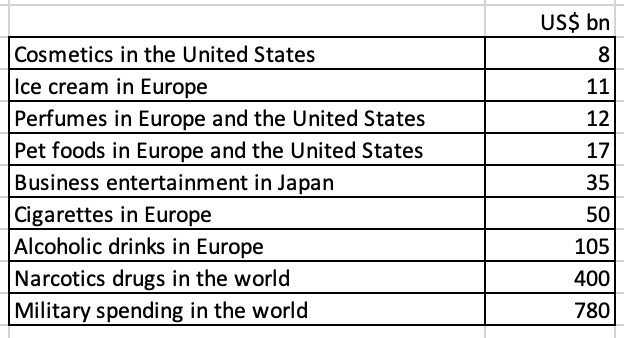Image by Gerd Altmann from Pixabay
The following are just some statistics that one should probably be aware of. In many areas the situation has improved significantly in recent years, but as can be seen from the following fairly recent statistics there is still much more to be achieved.
• 1 in 7 adults is functionally illiterate
• 63m children ages 6-11 years old were not attending school. (2016 figures)
• For under 17’s that increases to 263m children (1 in 5 children)
• 700m people live on less than $1.90 per day
• 2bn people on less than $2.50 per day
• 50% of those living in extreme poverty are children, 75% of whom live in Sub-Saharan Africa and Asia.
• 4m children under five die each year from preventable diseases like malaria, diarrhoea, and pneumonia, along with pre-term birth, birth asphyxia and trauma, and congenital anomalies remain the leading causes of these deaths. Nutrition-related factors contribute to about 45% of these deaths.
• 1m children suffer in sex trafficking
• Tobacco kills 7m people per year
• Heart disease kills around 18m people per year and cancer around 10m.
• Wars between 2000-2019 killed more than 1.4m people.
• Violence costs the world $8.3trn pa
• 20m people are refugees
• 600m people suffer from mental health issues. Though one could claim that birth issues, childhood and other life traumas affect all of us often quite severely and block us from our full potential.
• One third of the urban population is living in a slum
• 9% of the world’s total population still practices open defecation.
• 55% of rural populations lack the knowledge and resources to manage their own health by washing their hands with soap and water.
These are just a few indicators of where we are at.
Also consider the following spending patterns. These are 1998 figures, but help to illustrate the priorities in how we as a species choose to spend our money.

Then compare these with the spending estimates for :

It would appear that somehow we need to adjust our priorities.
